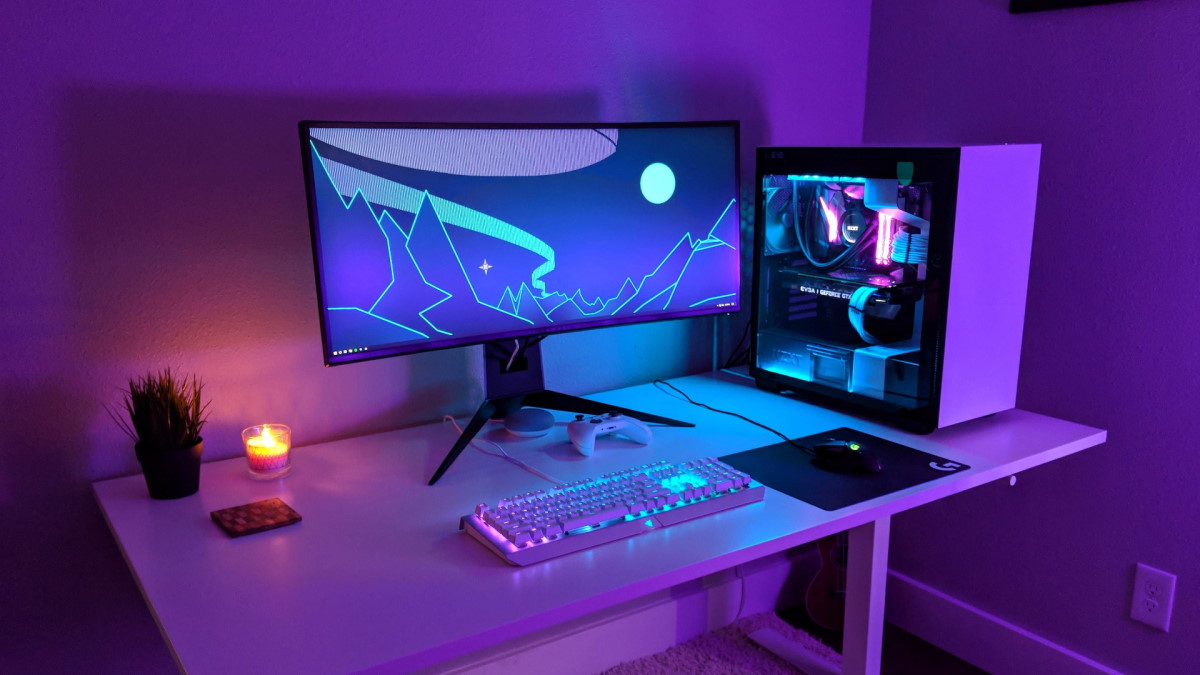Are your settings and setup perfect for online play or do you get a lot of lag? Game lags can result from many different things taking place on your end. We’ll go through each issue and tell you how to fix it, so you can focus on your mechanics instead of connection issues.
Check the quality of your connection
The quality of your online gaming experience and your internet connection go hand in hand. If your internet connection is weak, the chances are that you’ll often experience game lags and server disconnects. The best place to start improving online gameplay is to make sure your connection is working as intended.
Instead of using routers, even a WiFi 6E one, choose an Ethernet cable for your PC internet connection. Wired connections are immune to various interferences and ensure top speed. Since many smart devices can disrupt internet signals reaching your PC, lag is often common when you’re not using an Ethernet cable.
Numerous free tests online help you measure your connection’s bandwidth and ping – but don’t focus on bandwidth. Bandwidth doesn’t play that big of a role in this case, it’s ping what you should care about. A ping up to 50ms is considered ideal for most games.
If you are using a VPN for PC, it can also help beat ISP throttling. Internet service providers can and do slow down your connection if they notice significant spikes in your activity and online gaming and streaming are likely to trigger throttling. Since virtual private networks encrypt traffic, ISPs can no longer determine the type of traffic you initiate.
Upgrade your Wi-Fi network
If you are gaming over a Wi-Fi network and can’t use Ethernet, you might also experience in-game lag. The walls in your apartment can weaken the signal from your router, slow your bandwidth, and increase latency. The simplest solution is to reduce the distance between your gaming PC and the router. If it doesn’t help much, you should consider upgrading to a router that supports a 5Ghz wireless connection.
Of course, you should first check to see if your current router has this. Routers will often use the default 2.4Ghz channel, and you will have to manually switch to 5Ghz.
Configure your router to give gaming priority
Many modern routers enable users to fine-tune them to prioritize certain types of online traffic. You should log in to your router’s admin panel and look for Quality of Service. You can use this setting to give certain devices or traffic a priority. Some routers even have pre-defined Quality of Service settings that you can just apply.
You can either give priority to games or arrange the types of traffic, with the topmost traffic type on the list being the one with the highest priority. That might be useful if you share your router with others in your household.
Keep background apps from interfering
Some apps and websites that you have in the background can be bandwidth-heavy from time to time. While you may not notice it when not playing, a sudden download or upload can cause a game lag spike. It’s best to close all your background apps before starting a game.
If you are playing over a Wi-Fi connection, you should consider disconnecting other devices on the network, such as your smartphone or tablet. Apps on these devices can also cause disruptions, resulting in an in-game lag.
Setup automatic updates outside playing hours
Your operating system and other apps are set up to be automatically updated by default. When they download those updates, that can consume your bandwidth and cause your game to lag. Also, your computer may slow down while installing said updates, which also results in frame drop and lag.
You can easily avoid this by setting the automatic updates outside your gaming schedule. Some update agents, including the default Windows ones, will allow you to configure them to postpone updates or schedule PC updates for a specific time.
If you think it’s time for more drastic measures and want to turn off automatic updates, just set a reminder to update your software manually – and do it, don’t postpone. Keeping your OS and apps updated is an essential step to keeping your PC and private data safe.
Play on a local server
Some games allow you to choose servers you wish to join. For the best connectivity, pick the ones closest to your actual location. If possible, you can also set up a server via your computer. Then, you can invite your friends and enjoy some quality time together. However, bear in mind that running gaming servers is also a hefty task for your computer.
Scan for viruses
It is possible that poor internet connection is not an accident. It could be that your system is dealing with a virus or a malware infection. Then, an unknown program or process could consume a significant amount of bandwidth.
That’s why it is crucial to run frequent system scans through reliable antivirus tools. Furthermore, some infections are more inclined to drain your resources. For example, stealthy crypto miners could be using your computer resources to mine cryptocurrencies. Be sure to pick security tools that can also protect you against such threats.
Also read: Here Are The Best Cat Ear Headphones In 2022
If all else fails, there’s always the option to have a dedicated network connection for your gaming PC – it can help eliminate many factors that can potentially cause game lag. With lag resolved, you will not only have a much better gaming experience but you’ll also be able to focus on the fine mechanics of the game to improve your own skills.
Article contributed by Caroline Jones.
About the author: Caroline is an enthusiastic writer, gamer, and foodie, interested in helping people and becoming a veteran in all things technical. Cybersecurity is her passion, and the fight for digital privacy is one of her favorite subjects to dig deeper on a regular basis.
Follow TechTheLead on Google News to get the news first.























